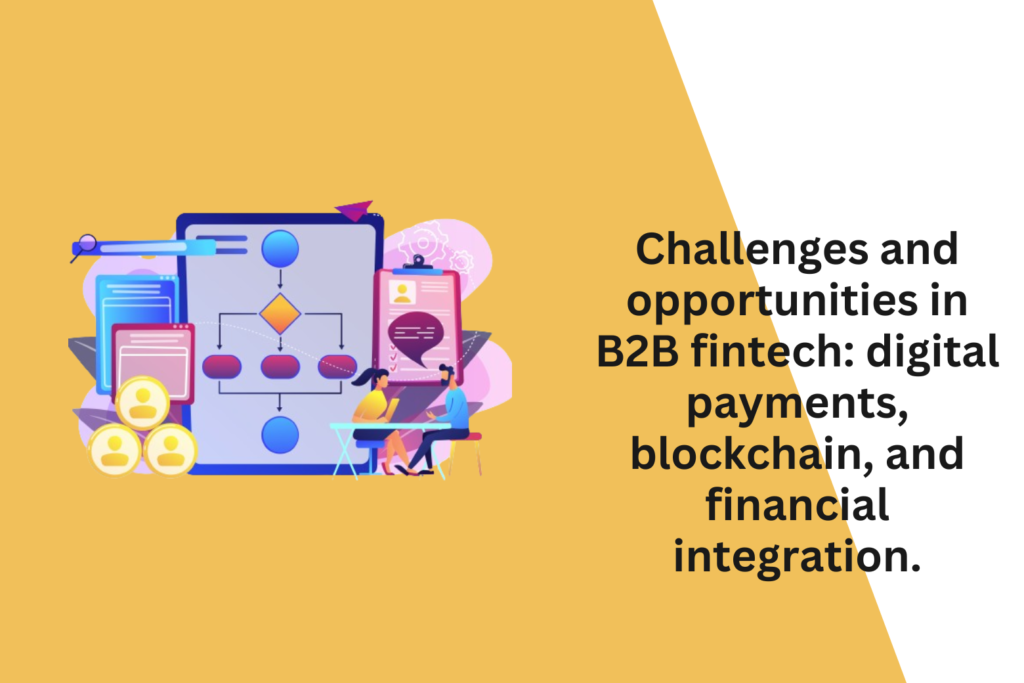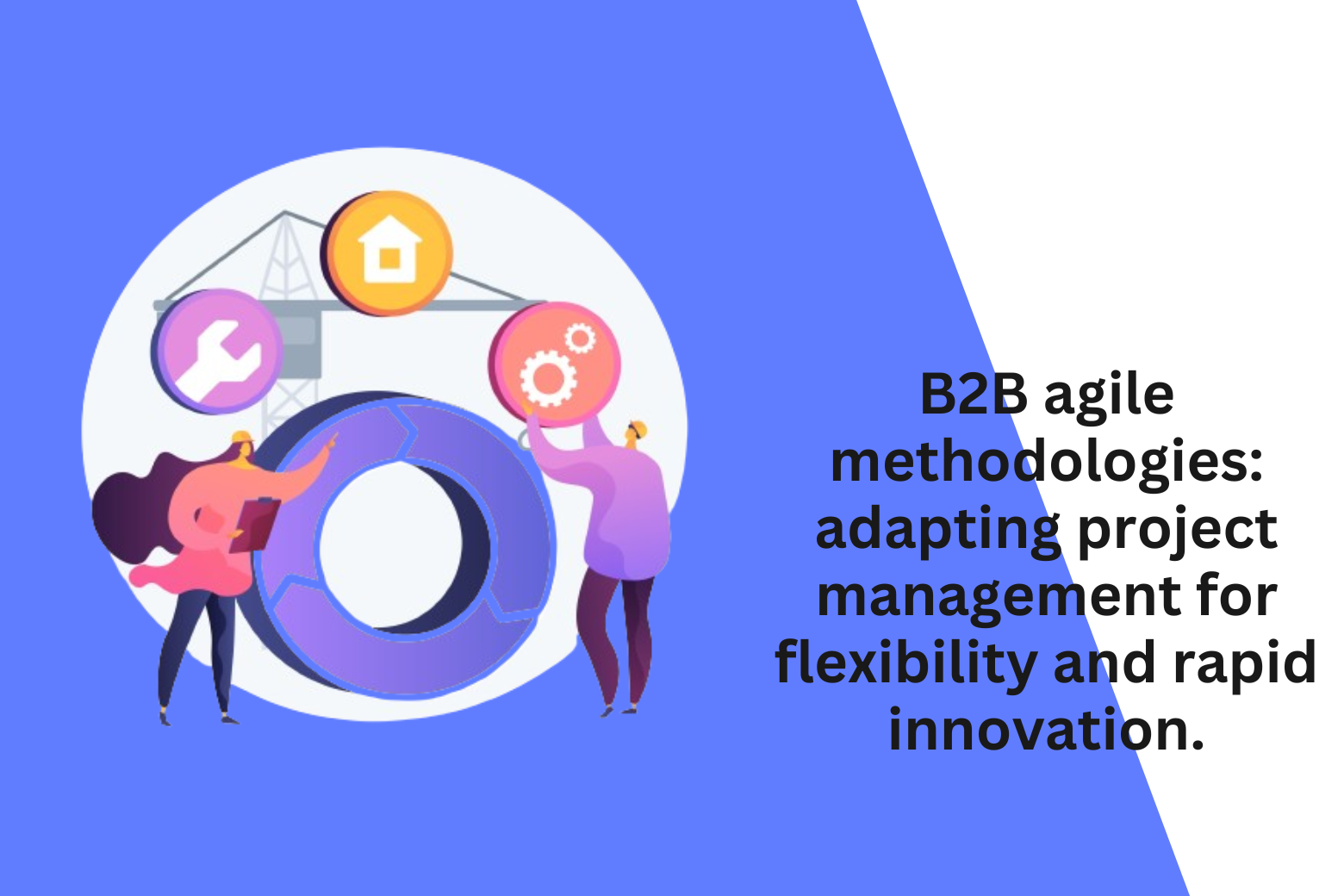
The B2B fintech landscape presents a dynamic environment with both challenges and opportunities. Here’s an exploration of the key challenges and opportunities in B2B fintech, focusing on digital payments, blockchain, and financial integration:
Challenges:
Security Concerns:
- Challenge: The digital nature of fintech solutions makes them susceptible to cybersecurity threats, including data breaches, fraud, and unauthorized access.
- Opportunity: Continuous investment in robust security measures, encryption technologies, and compliance with industry standards can mitigate security risks.
Regulatory Compliance:
- Challenge: The fintech industry operates within a complex regulatory landscape, and compliance with varying regulations across different regions can be challenging.
- Opportunity: Proactive collaboration with regulatory bodies, staying informed about changes in regulations, and implementing scalable compliance solutions can help fintech companies navigate regulatory challenges.
Integration with Legacy Systems:
- Challenge: Many B2B organizations, especially in finance, have legacy systems that may not easily integrate with modern fintech solutions, leading to implementation challenges.
- Opportunity: Fintech companies can offer flexible and scalable integration solutions, APIs (Application Programming Interfaces), and middleware to facilitate smoother transitions for businesses with existing systems.
Customer Education:
- Challenge: Adoption of new fintech solutions requires educating B2B customers about the benefits, functionalities, and security features, which can be time-consuming.
- Opportunity: Fintech providers can invest in comprehensive education and onboarding programs to empower businesses to make informed decisions and seamlessly integrate new technologies.
Scalability and Reliability:
- Challenge: Ensuring the scalability and reliability of fintech platforms, especially during periods of high demand, is crucial for meeting the needs of growing B2B clients.
- Opportunity: Investment in robust infrastructure, cloud-based solutions, and proactive capacity planning can enhance scalability and reliability.
Opportunities:
Digital Payments Transformation:
- Opportunity: The shift towards digital payments in the B2B space opens up opportunities for fintech companies to offer innovative solutions, such as real-time payments, electronic invoicing, and mobile payment options.
- Challenge: Overcoming resistance to change and addressing concerns about the security and reliability of digital payment systems.
Blockchain for Transparency and Security:
- Opportunity: Blockchain technology provides transparent, secure, and decentralized solutions for financial transactions, reducing fraud and enhancing trust.
- Challenge: Overcoming industry-wide adoption challenges, interoperability issues, and educating businesses about the benefits of blockchain.
Financial Integration and Automation:
- Opportunity: Fintech solutions can streamline financial processes, automate workflows, and integrate seamlessly with other business systems, enhancing efficiency and reducing manual errors.
- Challenge: Ensuring compatibility with diverse financial ecosystems, addressing data privacy concerns, and providing user-friendly interfaces for financial integration.
Data Analytics and Insights:
- Opportunity: Fintech enables B2B organizations to harness data analytics for gaining valuable insights into financial trends, customer behavior, and risk management.
- Challenge: Ensuring data privacy and compliance while leveraging analytics, and providing actionable insights that drive informed decision-making.
Cross-Border Transactions:
- Opportunity: Fintech facilitates smoother cross-border transactions, reducing costs and accelerating the speed of international payments.
- Challenge: Addressing regulatory complexities, currency exchange fluctuations, and navigating diverse financial systems across borders.
Collaboration and Partnerships:
- Opportunity: Collaborations between fintech companies, traditional financial institutions, and B2B businesses can foster innovation, improve service offerings, and create comprehensive financial ecosystems.
- Challenge: Building and sustaining effective partnerships requires addressing compatibility issues, aligning strategic goals, and navigating potential conflicts of interest.
In conclusion, the challenges and opportunities in B2B fintech underscore the transformative potential of digital payments, blockchain, and financial integration. Fintech companies that effectively address security concerns, navigate regulatory landscapes, and provide user-friendly, scalable solutions stand to drive significant advancements in the B2B financial space. Collaboration, innovation, and a customer-centric approach will play key roles in shaping the future of B2B fintech.



